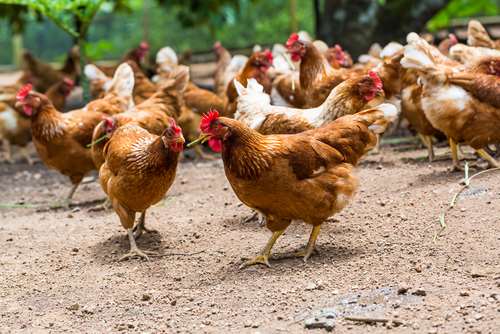First case resulted in depopulation of more than 70,000 chickens
By Diego Flammini
Assistant Editor, North American Content
Farms.com
On March 9, the Tennessee Department of Agriculture (TDA) confirmed the second case of avian influenza on a farm in the state.
Low pathogenic avian influenza (LPAI) was discovered at a poultry breeding facility in Giles County.
The infected flock was depopulated and buried, according to the TDA. The facility in Giles County is not associated with the facility in Lincoln County, where more than 70,000 birds were depopulated after high pathogenic avian influenza was discovered.

“This is why we test and monitor for avian influenza,” Dr. Charles Hatcher, State Veterinarian, said in a release. “When routine testing showed a problem at this facility, the operators immediately took action and notified our lab. That fast response is critical to stopping the spread of this virus.”
The premises is currently under quarantine, as are sites with domestic poultry within a 6.2 mile radius. TDA says testing is ongoing and completed tests have come back negative.
Still, surrounding states are keeping a close eye on the situation in Tennessee.
”We are staying in constant communication with appropriate state and federal agencies as well as poultry industry stakeholders to keep a watchful eye on the situation currently unfolding,” John McMillan, Alabama Commissioner of Agriculture and Industries, said in a release.
“Iowa saw firsthand the devastating impact of avian influenza in 2015 and in response our poultry farmers have made significant investments and an ongoing commitment to increase biosecurity efforts to keep their birds healthy,” Bill Northey, Iowa Secretary of Agriculture, said in a release. “We have also worked to learn from the 2015 outbreak to improve the response from both the state and federal governments.”